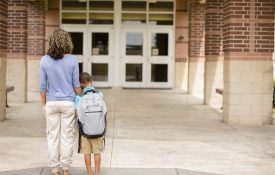-

About the Model
Promoting active student engagement in critical/scientific thinking about behavior and mental processes.
-

When Accommodating Children’s Symptoms Hurts Them More Than It Helps
Most families would do anything to minimize the distress of a child with a mental disorder. However, some strategies for dealing with these challenges may not always be beneficial in the long-run, suggests a recent
-

Myth: It’s Better to Stick to Your First Impulse Than Go Back and Change Multiple Choice Test Answers
A misconception that is ideally addressed early in the introductory course.
-
We Should Teach All Students, in Every Discipline, to Think Like Scientists
If knowledge is power, scientists should easily be able to influence the behavior of others and world events. Researchers spend their entire careers discovering new knowledge—from a single cell to the whole human, from an
-
Emerging Identities of Graduate Students
Many students find the transition from undergraduate to graduate education a difficult one. After all, it might be the first time individuals live away from campus and their childhood homes, cook for themselves, do their
-

Balancing Speaking and Listening for Language Learning
The second language learning literature emphasizes comprehension for language learning, but memory research suggests that producing the language is just as important for learning.

